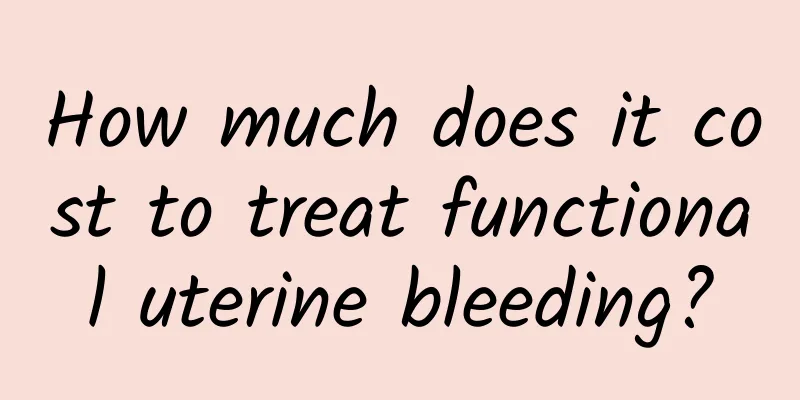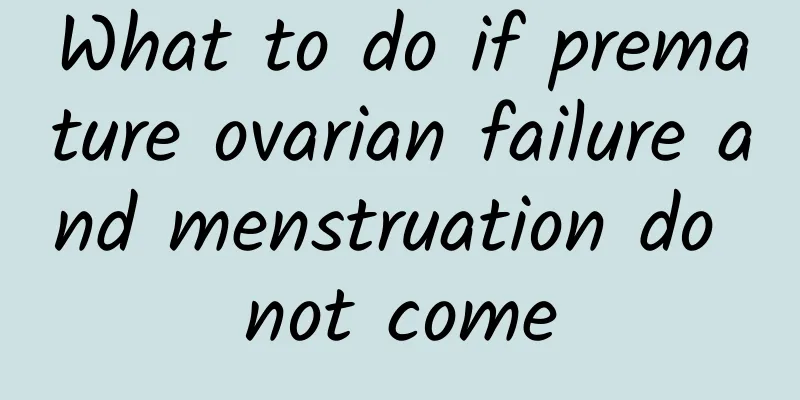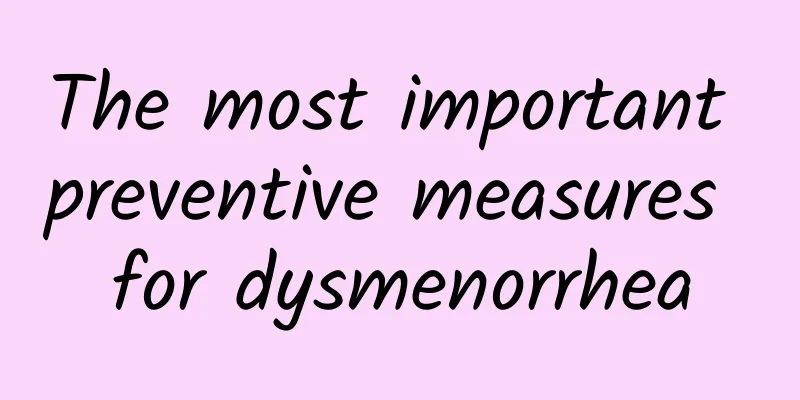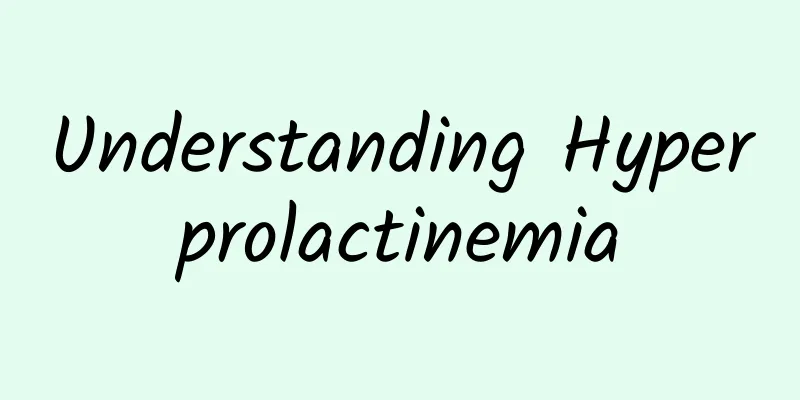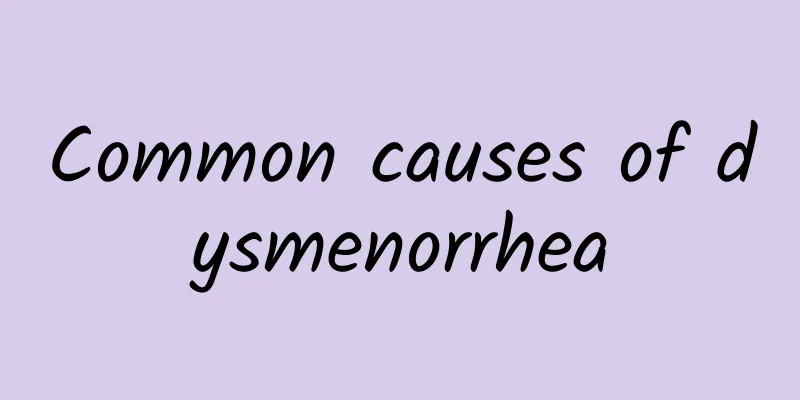How to treat uterine fibroids during pregnancy
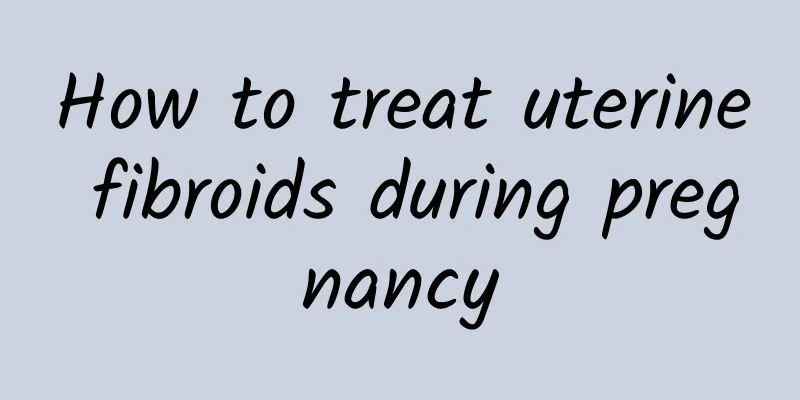
|
The incidence of uterine fibroids is increasing, especially for women who have not given birth, have sexual dysfunction, or are depressed. Experts say that excessive hormone secretion is the most common cause of uterine fibroids. So how to treat uterine fibroids during pregnancy? How to treat uterine fibroids during pregnancy? The treatment of uterine fibroids during pregnancy should be determined based on factors such as the month of pregnancy, size of the uterine fibroids, and clinical manifestations. 1. Treatment of uterine fibroids in early pregnancy Intervention of uterine fibroids in early pregnancy can easily lead to miscarriage, so it can be delayed until the second trimester. If the uterine fibroids are large in early pregnancy, it is estimated that there is a high chance of complications if the pregnancy continues, and termination of pregnancy is recommended. If the patient requires an artificial abortion, the pregnancy can be terminated first, and a uterine fibroid removal can be performed in the short term, or an artificial abortion and myomectomy can be performed at the same time. 2. Treatment of uterine fibroids during mid-pregnancy ① For patients with uterine fibroids less than 6 cm in diameter and without symptoms, regular prenatal examinations are recommended and most of them do not require special treatment. ② When the diameter of uterine fibroids is greater than 6 cm, the fibroids may continue to grow as the uterus grows. Large fibroids are prone to reddening and stimulate uterine contractions or peritoneal irritation symptoms. At this time, obstetricians only recommend bed rest and the use of analgesics for protective treatment. It is rarely recommended to perform uterine fibroid removal surgery during pregnancy, and uterine fibroid removal surgery is only performed when necessary. 3. Treatment of uterine fibroids in late pregnancy Small uterine fibroids do not need to be treated. If the diameter of the uterine fibroids is greater than 8 cm, but there are no symptoms, cesarean section can be performed at full term, and uterine fibroid removal surgery can be performed at the same time. Because large uterine fibroids may not only affect uterine contraction, abnormal labor force and delayed labor, but also increase the possibility of postpartum placental retention, postpartum hemorrhage and postpartum infection than normal mothers. The best way of delivery is elective cesarean section, and cesarean section and fibroid removal surgery are performed at the same time. |
<<: Can I get pregnant during adenomyosis?
>>: Causes of pelvic inflammatory bleeding
Recommend
Experts analyze the causes of cervicitis
The incidence of cervicitis is very high, and wom...
What should I pay attention to when myomectomy is accompanied by uterine hypertrophy? What should I do when myomectomy is accompanied by uterine hypertrophy?
What should I pay attention to when myomectomy is...
Can I eat snacks after a miscarriage? I can’t eat a lot of snacks for a long time.
During pregnancy, pregnant mothers will always fe...
What are the specific ways to prevent cervical hypertrophy?
Cervical hypertrophy is very common in life. When...
Lose weight here! 10 practical tips for you
Losing weight and slimming down is actually not t...
What are the symptoms and phenomena of cervical erosion
Cervical erosion is usually a common physiologica...
Will repeated abortions cause infertility? Pay attention to the three causes of infertility
Everyone knows that frequent abortions will affec...
Can I take levofloxacin for candidal vaginitis?
Levofloxacin is not usually recommended for candi...
How much does the female abortion screening program cost?
Before doing an abortion, we need to do some exam...
Authoritative explanation of post-abortion care
What are the health care methods after abortion? ...
Experts analyze the common causes of acute cervicitis
Although cervicitis is very common, many people d...
How long does it take to recover from an abortion?
It usually takes about 30 days to recover from an...
Dieting to lose weight may lead to nutritional imbalance and hair loss! 3 slimming soups and hair-nourishing eggs to save now
Losing weight is a common problem faced by modern...
Nuts protect your heart and reduce blood lipids. Will you be healthier the more you eat them? The more you eat, the fatter you get? Nutritionist: Don’t exceed this amount of nuts per day
As the Spring Festival approaches, traditional ma...
Early symptoms of ectopic pregnancy in women
Ectopic pregnancy should be familiar to women. If...
